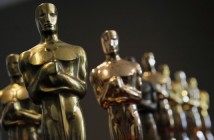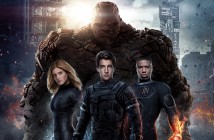Editor’s Note: Projecting features a selection of great film and television focused writing from around the internet.
Michael Koresky and Jeff Reichert profile Martin Scorsese in their introduction to a career retrospective, for Reverse Shot:
But the question of what we think of when we think of Scorsese is a much larger, confusing one. Once he was seen, reductively but not inaptly, as the preeminent chronicler of Italian-American Catholic guilt. Now that seems merely a starting point. Of late, his work as a preservationist and as an all-purpose guru for the legacy of world cinema itself—his 1981 campaign against the looming issue of fading color stock, which got the attention of Eastman Kodak; his heroic World Cinema Foundation, which rescues and preserves films from around the world; his various documentaries charting his personal journeys through film, which make him something like American cinema’s more scholarly, less radical Jean-Luc Godard—has somewhat overshadowed his directorial career.
Sean Burns and Jake Mulligan discuss the many films and changes in the career of Kevin Smith, for Movie Mezzanine:
Of course, as your look-at-the-walkouts memories prove, what really shook people in Clerks was the script. I think there’s more going on there than just filthy words, too. The film is acidic, astute, and above all else, deeply aware of its own smallness, and of the smallness of its characters’ aims. Randall is our id, always making snap judgments, causing break-ups, searching out sex—he’s a selfish pleasure drone. Dante is the ego: He’s just as much of an unambitious pleasure-seeker (the cheating, the cutting-work-to-go-play-hockey thing), but he knows how to present his laconic misbehavior in a slightly more socially acceptable manner.
Noah Gittell looks at the new Batmobile and the gradual militarization of the superhero movie, for Film School Rejects:
We all remember the outcry from fans when Snyder had Superman kill General Zod in that movie’s climax, and it appears that Snyder is doubling down on the violence, despite that criticism.
But it is unfair to lay all this at Snyder’s feet. There has been an increasing militarization of our superheroes afoot for decades, and Snyder is only continuing that tradition. In the Marvel world, superheroes perpetually exist in a military milieu. Tony Stark is a reformed defense contractor, while The Avengers was essentially about a Special Forces unit that prevented another 9/11.
Olivia Armstrong explains how Phoebe Buffay was the epitome of feminist self-actualization, for Decider:
Phoebe Buffay, the eccentric friend of Friends, may not have been as “out there” as we were led to believe. Sure, she was quirky and inappropriate at times, especially if it involved playing her acoustic guitar in public places, but there was certainly more behind her dumb blonde façade. Phoebe Buffay might have fooled the friends and the rest of the world back in the ’90s, but 20 years later it’s clear that Phoebe was, in fact, a role model for achieving self-actualization.





Pingback: guitar picks()
Pingback: free netflix login info()
Pingback: yspro.ne.jp()
Pingback: chapter 7 bankruptcy gettysburg()
Pingback: he has a good point()
Pingback: original site()
Pingback: Gaylord Druvenga()
Pingback: Best buy iPhone Samsung accessories()
Pingback: Leaflet template()
Pingback: movie2k()
Pingback: stained concrete()
Pingback: playpen for dogs()
Pingback: league of legends t-shirt shop()
Pingback: A.N.G Technology()
Pingback: ramalan cinta zodiak libra()
Pingback: league of legends sweatshirt()
Pingback: app developers()
Pingback: http://ecoblog.besaba.com/?p=3499()
Pingback: Guillermina()
Pingback: happy valentines day quotes()
Pingback: Brand Bangla Eshop()
Pingback: Employment lawyers()
Pingback: Employment attorney()
Pingback: plumber service()
Pingback: PREMIUM PROMOTIONS ON EXCLUSIVE CLUB CASINO()
Pingback: ebay deals nexus 7()
Pingback: golf range netting()
Pingback: master dog groomer()
Pingback: professional dog grooming()
Pingback: Final Cut Pro X()
Pingback: Final Cut Pro X Motion Effects()
Pingback: Stop Foreclosure Schertz Texas()
Pingback: Dog grooming()
Pingback: johnny castle()
Pingback: kim kardashian full porn app()
Pingback: hot naked girls app()
Pingback: Gascheck()
Pingback: est restaurant manchester()
Pingback: Diet()
Pingback: blues progression guitar()
Pingback: royalclub()
Pingback: galveston tx rentals()
Pingback: sacred 3 trainer()
Pingback: baby history()
Pingback: Schluesseldienst Berlin()
Pingback: top ayurvedic retreats in kerala()
Pingback: Best Affiliate Marketing Programs()
Pingback: news()
Pingback: Bail Bonds Tampa()
Pingback: Water Softener Barrie Ontario()
Pingback: tenerife blog()
Pingback: search engine optimization and internet marketing()
Pingback: Probiotic()
Pingback: my singing monsters mod()
Pingback: hungry shark cheat()
Pingback: boom beach apk hack()
Pingback: movietube()
Pingback: Auralei Anti Wrinkle Cream()
Pingback: guitar picks()
Pingback: Personal Insurance Singapore()
Pingback: weight loss for busy entrepreneur()
Pingback: leadership training singapore()
Pingback: second hand clothes wholesale()
Pingback: malaga agencia de publicidad()
Pingback: licensed drain clearing westlake()
Pingback: friends()
Pingback: microsoft flight simulator 2016()
Pingback: Marvelous Designer how to video()
Pingback: Penginapan Murah Di Depok()
Pingback: water heater repair onion creek()
Pingback: automotive mold()
Pingback: latest technology tips()
Pingback: Santa()
Pingback: cat boarding naples()
Pingback: pet sitter()
Pingback: Jasa Tukang Taman Bangka Belitung()
Pingback: Austin Steam IT()
Pingback: Osmosis Skin Care()
Pingback: we buy houses san antonio()
Pingback: Dealdey Online Shopping Nigeria()
Pingback: generate info()
Pingback: man cave store()
Pingback: Buy Isagenix Online()
Pingback: Erect on Demand()
Pingback: Microcap Magazine()
Pingback: bandar bola euro 2016()
Pingback: Vapor Mod Kits()
Pingback: white kidney bean extract go.php()
Pingback: seat cars()
Pingback: garcinia cambogia 2000 reviews()
Pingback: Personal GPS Tracker()
Pingback: slope w software()
Pingback: you won't believe()
Pingback: camera pen()
Pingback: Instant ageless()
Pingback: Resveratrol rahasia awet muda()
Pingback: make money online()
Pingback: happiness()
Pingback: Dr Field Harrison()
Pingback: Tulsa Bail Bonds()
Pingback: Female Voiceover()
Pingback: body weight()
Pingback: Email advertising()
Pingback: Positive Affirmations()
Pingback: ESTELLE()
Pingback: death()
Pingback: barbados real estate for sale()
Pingback: ollas rena ware()
Pingback: Complete Instamate Review()
Pingback: IT Support Ocala FL()
Pingback: Diaper Bags()
Pingback: bulk whatsapp gateway()
Pingback: mobile video messaging()
Pingback: diabetes review()
Pingback: Spring Hill carpet cleaning()
Pingback: nose hair trimmers for women()
Pingback: how to do marketing()
Pingback: Compagnie de menage à montreal()
Pingback: lifelock reviews()
Pingback: hcg injections()
Pingback: serviporno()
Pingback: you suck at parking()
Pingback: fashion jewelry()
Pingback: jump manual review()
Pingback: music()
Pingback: IATA Pet Cages in Sri Lanka in Sri Lanka()
Pingback: punta cana fotos hoteles()
Pingback: REGALOS PARA BODA()
Pingback: tenerife estate agents()
Pingback: fast food restaurants near me()
Pingback: العاب()
Pingback: gap insurance quote()
Pingback: business loan()
Pingback: fundraising website()
Pingback: alcohol rehab facility()
Pingback: dessert()
Pingback: Automated Trading-NinjaTrader()
Pingback: tenerife forum()
Pingback: Cleaning Quoets()
Pingback: custom web design()
Pingback: Law Office of Peter Castellana()
Pingback: cerrajeros elche 24 horas()
Pingback: mixed martial arts()
Pingback: Thai Porn()
Pingback: rosengard.tv()
Pingback: australias most unreliable bank()
Pingback: Glennis()
Pingback: weight loss programs for men()
Pingback: in-home pet care in naples()
Pingback: read what he said()
Pingback: Click This Link()
Pingback: Springhill()
Pingback: in home dog care()
Pingback: Disciplinary council Robert G Creely()
Pingback: Springhill()
Pingback: mobile strike hack apk()
Pingback: empresa de cerrajeria san juan()
Pingback: MLM Recruiting()
Pingback: starcom()
Pingback: free messenger()
Pingback: carpet cleaning Austin()
Pingback: Blogging Tips()
Pingback: gain followers on instagram()
Pingback: Austin plumber()
Pingback: Sacramento compounding pharmacy()
Pingback: Katelyn Mcgown()
Pingback: job oriented java training in pune()
Pingback: USA Box Express LLC()
Pingback: Run A Webinar Bonus()
Pingback: howrse hack()
Pingback: cancer prevention()
Pingback: Nootropic()
Pingback: IT Support in Oslo()
Pingback: Obama student loan forgiveness()
Pingback: USA Box Express()
Pingback: pro flight simulator 2017()
Pingback: RunAWebinar Review()
Pingback: https://www.facebook.com/sexiercom/()
Pingback: solar related()
Pingback: Treatment for toenail fungus()
Pingback: ecommerce seo()
Pingback: Best Seller Micro Stretch Gym Shorts()
Pingback: Buy Isagenix Online()
Pingback: porno()
Pingback: SuperGaminator Bonus()
Pingback: Share Video()
Pingback: expert advisor mt4()
Pingback: 22 Minute Hard Corps Download()
Pingback: Excel Consultants()
Pingback: sloveniainvest()
Pingback: Naomi()
Pingback: iphone Broken mobile screen()
Pingback: golf range netting()
Pingback: SignatureBailBondsofTuls()
Pingback: streetview()
Pingback: http://alexanderatty.com/()
Pingback: sanitation()
Pingback: san diego realtor()
Pingback: personal trainer()
Pingback: installshield download()
Pingback: http://keepyourhair.cba.pl/()
Pingback: Beads()
Pingback: online gambling()
Pingback: The Lost Ways()
Pingback: Goggles()
Pingback: how to get your ex back kevin()
Pingback: premium womens shirts()
Pingback: Brooklyn Body Shop()
Pingback: porno()
Pingback: Wedding-photographer-Washington-DC()
Pingback: Garage Door Repair & Installation()
Pingback: drone list()
Pingback: pet sitter naples fl()
Pingback: Eulalio Tirado Lizarraga()
Pingback: Conroe Criminal Lawyer()
Pingback: Decorative Concrete of Austin()
Pingback: hentai comics()
Pingback: Los Angeles SEO services()
Pingback: Zahnpasta ohne Fluorid()
Pingback: lawnmower repair()
Pingback: Lorraine()
Pingback: cours d anglais aix en provence()
Pingback: clash royale cheats()
Pingback: Message your friends()
Pingback: neuken()
Pingback: epicsoccertraining()
Pingback: Limo Service Los Angeles()
Pingback: MARA AGENT ADELAIDE()
Pingback: funny jokes()
Pingback: Wedding Dress Cleaning and preservation()
Pingback: Homepage()
Pingback: clash royale()
Pingback: Homepage()
Pingback: wholesale notebooks()
Pingback: Mattify Cosmetics Makeup for Oily Skin()
Pingback: porno()
Pingback: http://www.toprubbishclearance.co.uk/rubbish-removal-united-kingdom_boston-manor-ealing-w7.html()
Pingback: suspenders()
Pingback: Cute Dresses()
Pingback: Phenq Weight Loss()
Pingback: boys clothing()
Pingback: hack clash royale gems()
Pingback: McAfee Account Login()
Pingback: airport porn()
Pingback: xxx()
Pingback: psychic source customer reviews()
Pingback: kids wear()
Pingback: The Lost Ways()
Pingback: Digital Media()
Pingback: vipprinting()
Pingback: Quicken Loans Login()
Pingback: http://sedotwcsurabaya.yolasite.com/()